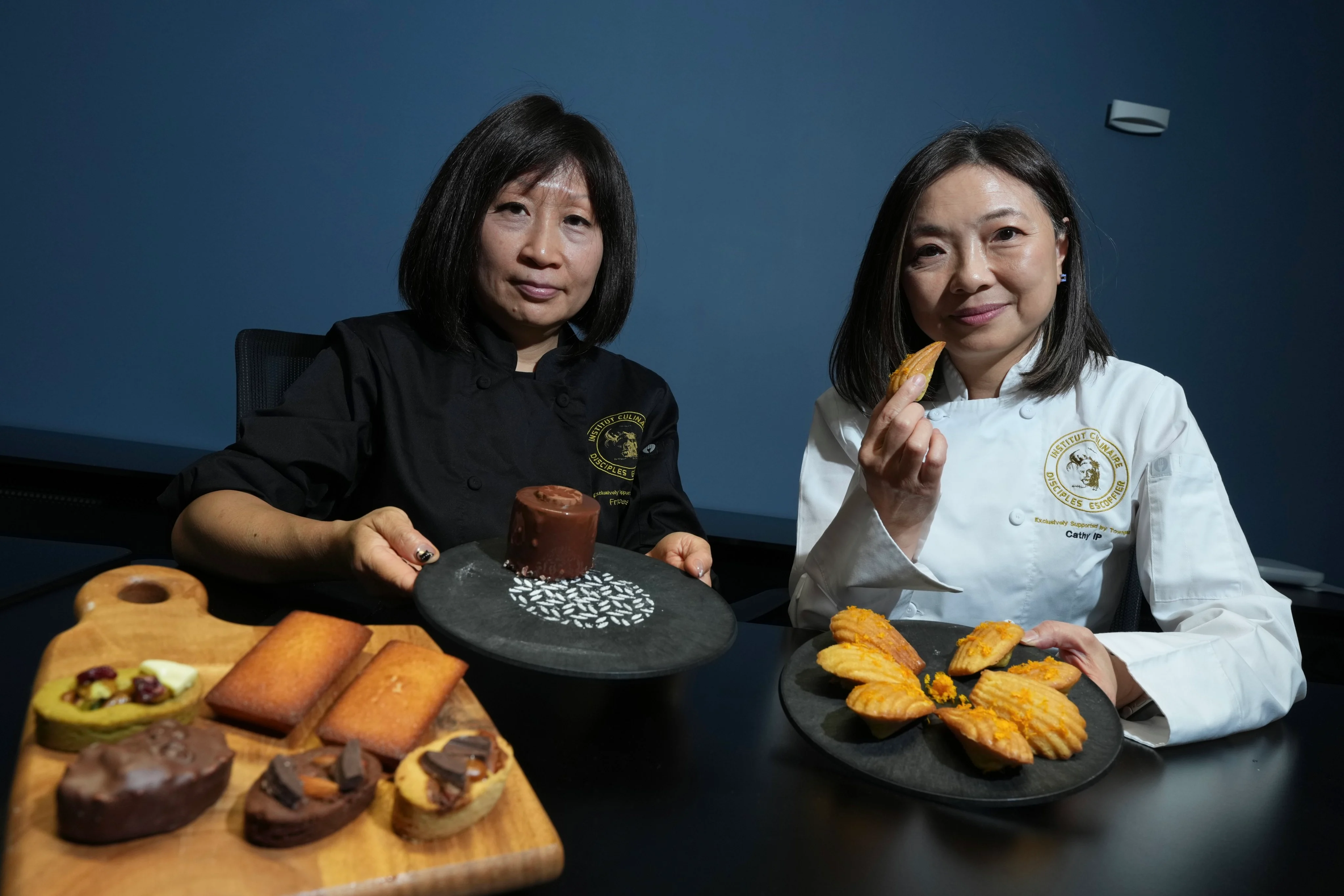Copyright scmp

“I started baking because I missed my grandmother’s banana muffins,” said Frances Lam, one of the winners in Hong Kong’s inaugural French Bakery Cup, held earlier this month. “It seems like such a simple thing – banana muffins – but you’d be surprised how difficult it was to try to find them with that same warm taste as my grandmother’s. That’s when I decided to give baking a go.” Lam’s passion for baking led her to start Batter Twins with Cathy Ip, whom she met while studying at Hong Kong’s Institut Disciples Escoffier baking school during the Covid-19 pandemic. What began as a casual hobby for the two classmates led to their entry – and victory – in their first major baking competition. The French Bakery Cup, a three-day baking competition hosted by Business France with the support of the Hong Kong Bakery and Confectionery Association, was held at The Peninsula Hong Kong hotel in the city’s Tsim Sha Tsui neighbourhood from October 13 to 15. Since 2010, Business France has held French Bakery Day events showcasing French bakeries in the mainland Chinese cities of Beijing, Shanghai, Chengdu and Shenzhen, and held the first edition in Hong Kong in 2024. But the French Bakery Cup saw bakeries facing off in a competition. There were two categories: boulangerie, in which bakers were judged on traditional baguettes and pains au chocolat; and patisserie, which evaluated items such as fruit-flavoured madeleines and French entremets. Lam and Ip’s Batter Twins won in the patisserie category against Racine Patisserie, Solight Studio and Siu Wan Kitchen. In the boulangerie category, Say Hey Bakery – co-founded by Eric Pang and Pak Wong – won against Doughman, Levain Bakery and Frenchies. Among the judges was Gregoire Michaud, the founder of the popular Hong Kong bakery chain Bakehouse. “An event of this calibre shows that Hong Kong has not only a well-travelled, discerning customer base but also a deep pool of local talent capable of producing world-class baked goods,” he said, adding that the competition “inspires a new, measurable benchmark” for bakeries in Hong Kong. “For years, many of us have been working to elevate the standards of baking in Hong Kong, and this event gives everyone, from established bakeries to aspiring newcomers, a clear standard of excellence to aim for,” he said. “Healthy competition pushes us all to be more creative and to never get complacent.” Following Batter Twins’ victory, Ip said that she baked to let off steam after her “very high-intensity daytime job”. She added that it was “quite healing to focus on something outside of work for a while. It wasn’t very much about winning for me, but stress relief.” Pang and Wong of Say Hey Bakery have a combined experience of nearly 20 years in Hong Kong’s baking industry. Wong said that he committed to baking after he left school at 18 years old. “I actually became interested in baking when I saw that one Wu Pao Chun movie,” he said, referring to 27°C: Loaf Rock, a 2013 film about the famous Taiwanese baker. “I guess it was cool enough for me to pursue a career in baking full-time, and I’ve been doing it ever since.” Pang said that he has also been a part of Hong Kong’s baking scene for a while, starting at large factories and eventually moving to his smaller bakery in the city’s Cheung Sha Wan neighbourhood. Hong Kong’s baking scene is special because of its mix of craftsmanship, passion and diversity. It brings together people from different backgrounds to combine “tradition while embracing innovation”, as Michaud put it. With the French Bakery Cup, the city’s unique baking culture is flourishing and evolving, according to fellow judge Amanda Strang, the French actress and model who opened her own patisserie in Hong Kong. She said that Hongkongers show “immense creativity” in their tendency to experiment, incorporating new and shocking ingredients, because “the main characteristic [of local pastries] is that they are always less sweet”. She added that this is “actually quite nice, because when it’s less sweet, you make it up with flavour. “I think what’s most important is that all of the contestants know the French techniques and how to express them, but also how they make them uniquely their own,” she said. “It’s always customisable. I saw a lot of use of ginger and lime, and there was one participant who used sansho pepper just to add a kick.” Pang expressed a similar sentiment: “When it comes to [Hong Kong-style] bread, people focus more on the ingredients. For example, with sausage buns and pineapple buns, the main focus is on the ‘pineapple’ layer or the sausage. “The temperature and pressure requirements are also much stricter for the French. You know, Hong Kong people usually just bake with their heart,” he said, laughing. “When you put the two together, it creates something incredibly distinct and memorable.” As for the future of French baking in Hong Kong, Strang said that the biggest issue for the city’s bakeries is finding the right people to educate and learn the craft. “Let’s say, in France, where people grew up with French pastry, hiring will be much easier. It requires training, keeping up the standard, and a lot of hard work and grit. A lot of contestants do not have a [baking] full-time job because it requires a big investment, and the competition is a good way to keep supporting their passion and bring awareness to them,” she said. Michaud added that events like the French Bakery Cup show young culinary students in Hong Kong the possibility of a viable, rewarding career path in artisanal baking. “By celebrating the winners and showcasing the craft, we are creating role models for the future,” he said.



